Alicante’s centuries-old history and cultural riches await visitors on a private guided walking tour. From ancient tribal settlements to the city’s strategic maritime significance, this immersive experience delves into Alicante’s complex past. Guests uncover the remnants of Castilian and Aragonese rule, the impact of the Rif War, and Alicante’s pivotal role during the Spanish Civil War. Along the way, they’ll discover medieval landmarks, architectural gems, and the vibrant present-day character of this Mediterranean gem. With a knowledgeable local guide by their side, travelers can expect to be captivated by Alicante’s enduring charm and cultural diversity. What secrets might this tour unveil?
Key Points
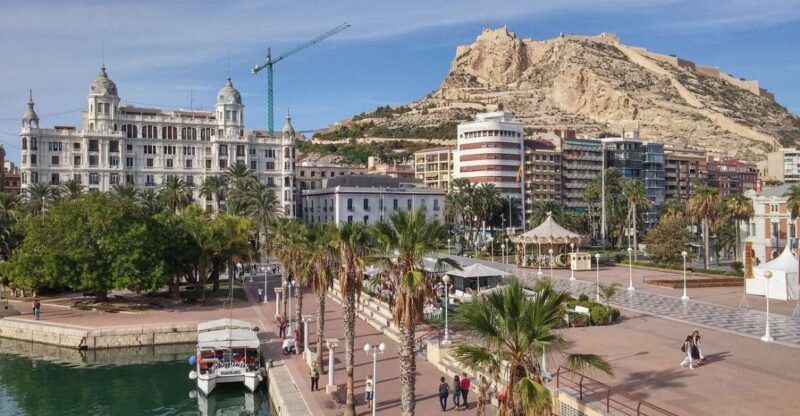
- Explore the ancient Greek and Phoenician trading posts that shaped Alicante’s strategic coastal location along major Mediterranean trade routes.
- Discover the city’s medieval heritage, including the iconic Castle of Santa Barbara and the historic Cathedral of St. Nicholas.
- Gain insights into Alicante’s pivotal role during the Castile-Aragon clashes, the War of the Spanish Succession, and the Spanish Civil War.
- Uncover the cultural secrets and hidden gems of Alicante, from its vibrant modern architecture to its bustling traditional markets.
- Experience a personalized tour that provides a deeper understanding of Alicante’s rich history and its enduring influence on the region.
Ancient Tribes and Settlements
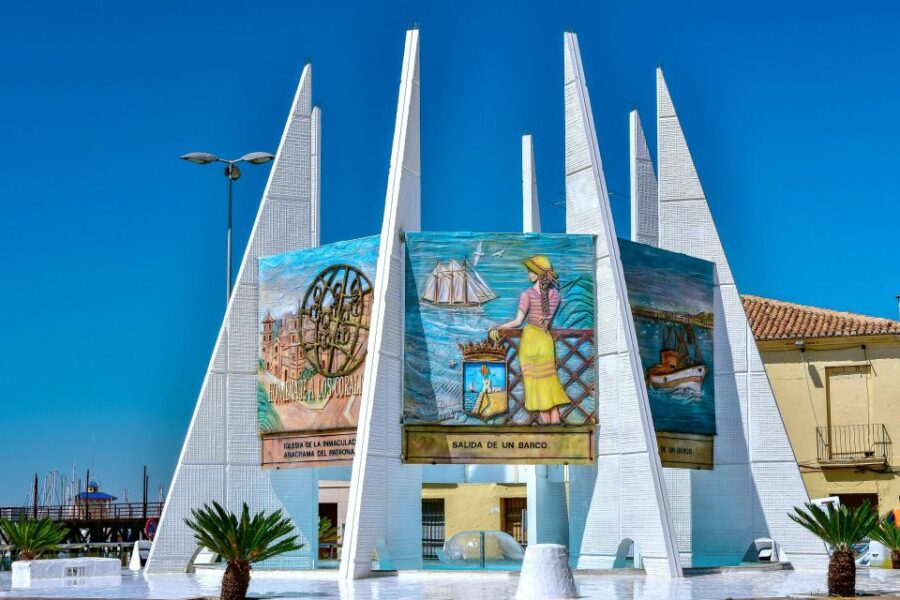
Alicante’s rich history dates back to ancient hunter-gatherer tribes who first settled the region, leaving behind remnants of their primitive tools and shelters. Archaeological excavations have uncovered evidence of these early inhabitants, who lived off the land and adapted to the Mediterranean climate.
Over time, the area became an important hub for Greek and Phoenician trading routes, with these civilizations establishing coastal outposts and trading posts. The strategic location of Alicante on the southeastern Spanish coast made it a coveted prize, leading to clashes between various empires and kingdoms vying for control.
These layers of history have left an indelible mark on the city, shaping its cultural heritage and architectural landscape.
Want to keep it personal? More private experiences we love in Alicante
Greek and Phoenician Trade Routes
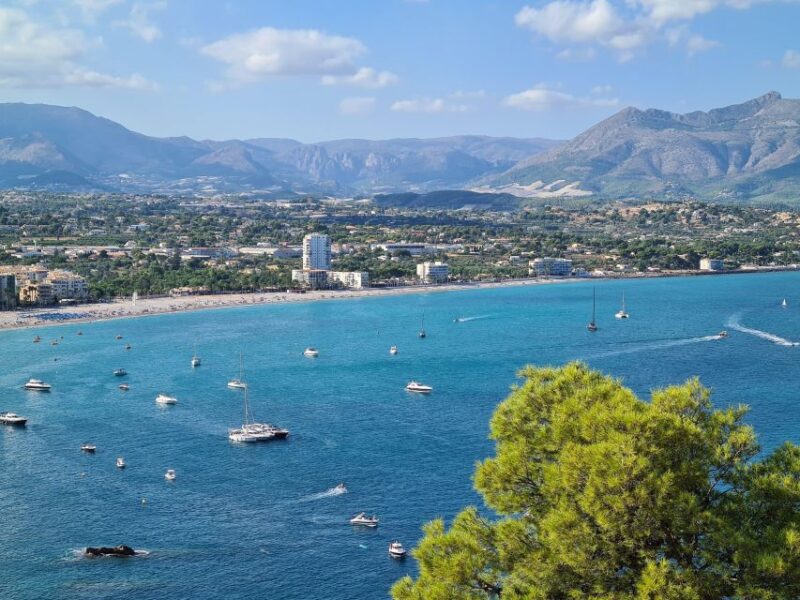
The strategic location of Alicante along major Greek and Phoenician trade routes saw the hotel of coastal outposts and trading posts by these ancient Mediterranean civilizations.
Greek colonists settled in Alicante as early as the 6th century BCE, drawn by the region’s natural harbor and access to lucrative maritime trade networks.
The Phoenicians, renowned seafarers, soon followed, constructing fortified emporia to facilitate the exchange of goods like metals, textiles, and agricultural products.
Archeological evidence reveals the cosmopolitan nature of these ancient settlements, with a diverse array of imported ceramics, luxury items, and architectural styles reflecting the vibrant commercial activity that thrived in Alicante during this period of classical antiquity.
Castile-Aragon Clashes and Succession Wars
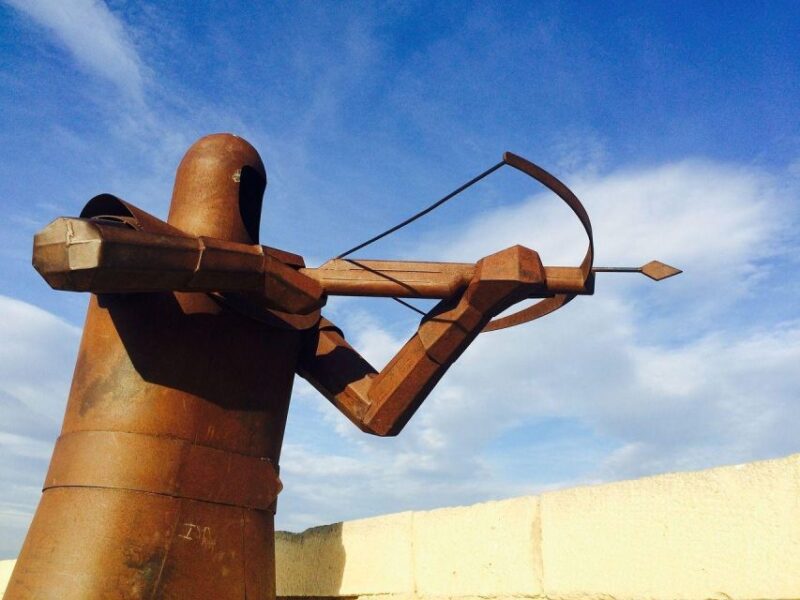
Tensions between the rival Iberian kingdoms of Castile and Aragon often flared into open conflict, as dynastic ambitions and disputes over territory embroiled the region in a series of succession wars that left an indelible mark on Alicante’s history.
The struggle for the Spanish throne reached a crescendo during the War of the Spanish Succession in the early 18th century, with Alicante becoming a key battleground as Bourbon and Habsburg claimants vied for control.
The city’s strategic coastal location made it a prized possession, changing hands multiple times as the tides of war ebbed and flowed.
Scars from these conflicts can still be seen in Alicante’s architecture, where bullet-pocked walls and fortifications stand as silent witnesses to the turbulent past.
Today, the legacy of these Castile-Aragon clashes serves as a testament to the resilience of Alicante’s people, who’ve weathered the storms of history to emerge stronger and more united.
Complexities of the Rif War
Amidst the broader political and military upheavals of early 20th-century North Africa, the Rif War erupted as a complex and multifaceted conflict that reverberated across the Mediterranean, leaving an indelible mark on the history of Alicante and the wider region.
Rooted in the colonial ambitions of Spain and France, the Rif War pitted the Riffian tribesmen against the European powers, culminating in a prolonged and bloody struggle.
The war’s impact was felt in Alicante as the city became a hub for military logistics and a refuge for those fleeing the fighting.
Exploring these historical complexities offers visitors a deeper understanding of the region’s past and the formative events that continue to shape its present.
More Great Thing To Do NearbyExploration of Medieval Landmarks
Alongside the complexities of the Rif War, Alicante’s medieval landmarks stand as a testament to the city’s rich and storied past, offering visitors a captivating window into its architectural and cultural heritage.
Towering over the city, the iconic Castle of Santa Barbara commands panoramic views and dates back to the 9th century, when it was a Moorish fortress.
The historic Cathedral of St. Nicholas, with its striking Gothic-Renaissance design, is another must-see, showcasing the city’s diverse influences.
Visitors can also explore the ancient city walls, which have guarded Alicante for centuries, and the charming Old Town, where winding streets and plazas reveal the city’s medieval heart.
Loving the local insights? Here are more guided experiences we recommend in Alicante
Spanish Civil War Historical Insights
During the Spanish Civil War, Alicante played a pivotal role as a Republican stronghold, serving as a key port for the supply and evacuation of troops and civilians.
The city witnessed fierce clashes between Nationalist and Republican forces, with the iconic Castle of Santa Barbara becoming a strategic vantage point and the site of bitter battles.
Visitors can explore the remnants of this tumultuous period, uncovering the stories of the soldiers, civilians, and political figures who shaped Alicante’s wartime experiences.
The tour guide will explore the complexities of the Rif War and the Castile-Aragon clashes that marked this divisive era, providing a deeper understanding of the city’s history and its importance in the broader context of the Spanish Civil War.
Cultural Secrets and Discoveries
The walking tour uncovers Alicante’s rich cultural tapestry, revealing ancient trade routes that connected the city to the wider Mediterranean world. Visitors explore remnants of Greek and Phoenician settlements, marveling at the resilience of these early maritime powers and their enduring influence on the region’s identity.
The tour delves into Alicante’s complex history, tracing the echoes of Castile-Aragon clashes and the intrigues of the Succession War. Participants also discover the city’s vibrant present, where modern architecture and bustling markets coexist with centuries-old traditions.
From the iconic Castillo de Santa Bárbara to the intricate patterns of Moorish architecture, the walking tour showcases Alicante’s cultural diversity and invites travelers to uncover its hidden gems.
Customization Options With Local Guide
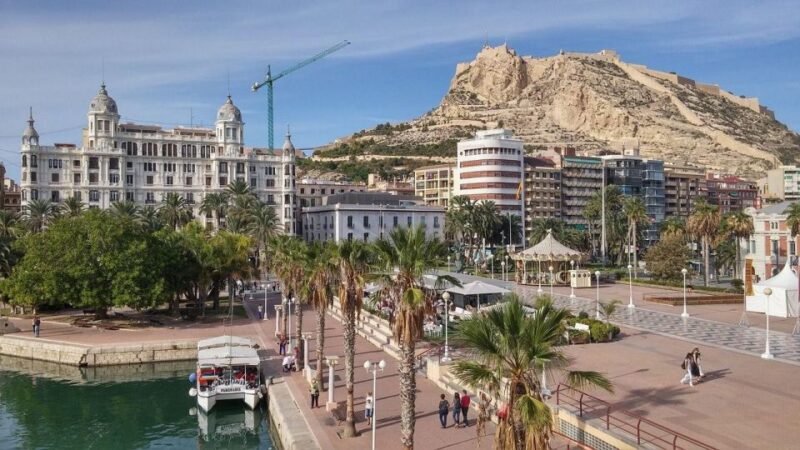
One of the key advantages of this private guided walking tour is the ability to customize the experience with the local guide.
Travelers can work closely with the knowledgeable guide to tailor the itinerary, focusing on areas of particular interest or adjusting the pace to suit their preferences.
This personalized approach ensures that visitors make the most of their time in Alicante, exploring the city’s highlights and hidden treasures in a way that resonates with their individual interests and curiosities.
Whether you’re drawn to the region’s medieval history, the Spanish Civil War, or the city’s vibrant cultural scene, the guide can adapt the tour to cater to your specific preferences, creating a truly memorable experience.
Frequently Asked Questions
Is the Tour Suitable for Visitors With Mobility Issues?
The tour’s suitability for visitors with mobility issues depends on the specific requirements and abilities of each individual. It’s best to consult with the tour provider to determine if the tour can accommodate any accessibility needs.
Can the Tour Be Conducted in Languages Other Than Spanish?
The tour can be conducted in languages other than Spanish. According to the information provided, the local professional guide is able to offer possible customization, which likely includes accommodating different language preferences for tour participants.
What Is the Cancellation and Refund Policy for the Tour?
The tour’s cancellation and refund policy typically allows for free cancellation up to 24 hours prior to the start time. Refunds are usually provided in full for cancellations within this window, subject to any applicable fees.
Are There Any Age Restrictions or Requirements for the Tour?
There are typically no age restrictions or requirements for the tour, though the nature of the walking and content may not be suitable for very young children. It’s recommended to check with the tour operator for any specific policies.
Can the Tour Be Extended or Shortened to Accommodate Our Schedule?
The tour can typically be extended or shortened to accommodate the schedule of your. The local guide is often willing to adjust the duration of the tour to fit the needs and preferences of the group.
Recap
The Alicante Private Guided Walking Tour offers a captivating journey through the city’s rich history and cultural tapestry.
From ancient settlements to medieval landmarks, the tour delves into Alicante’s strategic role in regional conflicts and its enduring charm.
Travelers can discover the city’s complexities, uncover hidden secrets, and gain unique insights with the guidance of a local expert.
This immersive experience is a must for anyone seeking to truly understand the essence of Alicante.
You can check if your dates are available here:More Walking Tours in Alicante
More Tours in Alicante
- Alicante: Estret De Les Penyes Ravine Canyoning Tour
- Alicante 360º Semi-Private Tour City, Culture, Tapas & Drink
- Alicante: Canelobre Caves & Busot Tour Including Transfer
- Alicante : E-Bike Coast Tour, Roman Fish Farm And Snorkeling
- Private 4-Hour City Tour of Alicante (Cruise Port or Hotel Pick Up)
- Alicante: Coastline E-Bike and Hiking Tour
More Tour Reviews in Alicante
Not for you? Here's more things to do in Alicante we have recnetly reviewed
- 2 Best Canoe And Kayak Experiences In Alicante
- 4 Best Shopping Tours In Alicante
- 13 Best Canoe And Kayak Experiences In Alicante
- 5 Best Jet-Ski Experiences In Alicante
- 13 Best Private Car With Driver Services In Alicante
- 8 Best Cruises And Boat Tours In Alicante
- 8 Best Food Tours In Alicante
- Half-Day Climbing Experience on via Ferrata Del Ponoig
- Discover the Highlights of the Alicante City on a Private Full Day Tour
- Private Premium Wine Tasting and Tapas
- Private Departure From Alicante to Airport ALC by Business Car
- Alicante: Chocolate and Nougat Tasting
